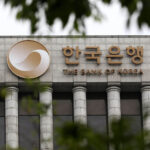As political pressure mounts, money managers believe that Thailand’s weak economy strengthens the case for the central bank to initiate interest rate cuts sooner rather than later. Prime Minister Srettha Thavisin’s heightened calls for a rate reduction following unexpected weakness in fourth-quarter growth have ignited discussions about the Bank of Thailand’s monetary policy decisions, despite the conventional notion of policy independence.

While the country’s deflationary trend had already fueled speculation of impending policy easing, the recent push for off-cycle rate cuts intensifies the debate. Most analysts anticipate a rate cut at the central bank’s next scheduled meeting in April, reflecting growing expectations within the market. This sentiment has attracted significant foreign investment into Thai stocks, with swaps pricing in a reduction of over 20 basis points in the next three months.
Kheng Siang Ng, head of Asia Pacific fixed income at State Street Global Advisors, highlighted Thailand’s weakening GDP growth and deflationary pressures, indicating a growing anticipation for rate cuts. Economists surveyed by Bloomberg project a modest expansion of 3.3% for Southeast Asia’s second-largest economy this year, a figure trailing pre-pandemic growth rates.
Leonard Kwan, a portfolio manager at T. Rowe, emphasized the importance of monetary easing amidst recent economic challenges, suggesting that it could bolster the resilience of Thai bonds against global counterparts.
Despite calls for lower rates, the clash between Prime Minister Srettha and BOT governor Sethaput Suthiwartnarueput has raised concerns among investors. Srettha’s overt attempt to influence monetary policy echoes past instances of political interference, casting doubts on the central bank’s independence. However, amendments to the central bank law in 2008 aimed to safeguard the BOT’s autonomy, underscoring the importance of maintaining monetary independence.
BOT’s Assistant Governor Piti Disyatat reiterated the central bank’s willingness to lower rates if economic weakness persists, although concerns about high household debt have tempered rate cut prospects.
Drawing parallels with other countries, analysts caution against excessive political interference in monetary policy, citing examples like Turkey, where similar actions led to adverse market reactions and undermined investor confidence.
As Thailand navigates this delicate balance between political pressures and monetary independence, stakeholders emphasize the importance of learning from past experiences to maintain stability and confidence in the economy.









